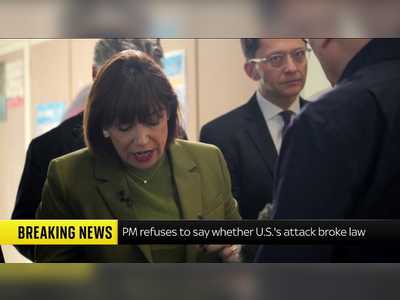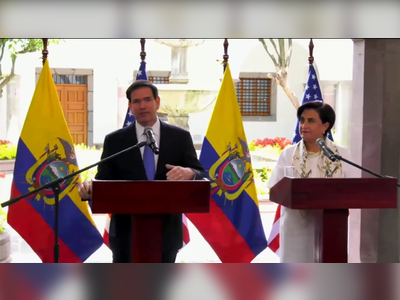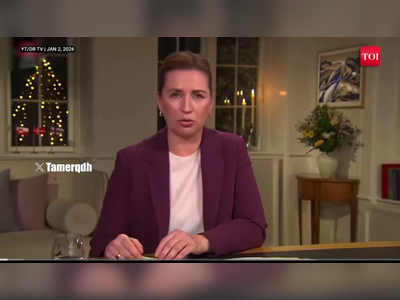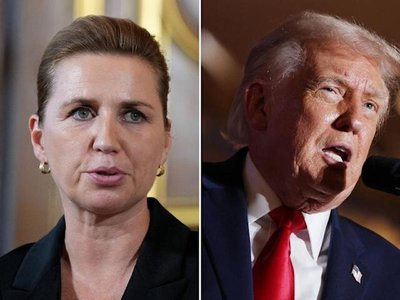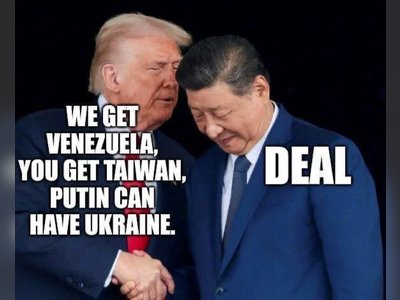
De-dollarization: Three Reasons Why Nations Are Diversifying Away from the US Dollar
De-dollarization: Three Reasons Why Nations Want to Break Up with the USD.
The US dollar has been the world's reserve currency for decades, but its dominance is fading.
With the rise of alternative currencies, many countries are considering breaking up with the USD.
Here are three reasons why: 1.
US Monetary Policy Holds Too Much Sway Over the Rest of the World As the issuer of the world's reserve currency, the US has an outsized hold on the global economy.
This "exorbitant privilege" means that the US can issue money without facing the same risks as other countries.
Additionally, other countries must follow US monetary policies to avoid negative spillover effects on their economies.
However, some countries, including India, are pushing back against US monetary policies and exploring the use of alternative currencies such as the Indian rupee for trade.
2.
The Strong USD is Getting too Expensive for Emerging Nations As the US dollar gains strength against other currencies, imports become more expensive for emerging nations.
This has led to political pressure and economic instability in countries such as Argentina, which has begun paying for Chinese imports in yuan instead of US dollars.
If access to USD becomes more expensive, borrowers will seek alternatives, making it easier for alternative currencies to gain traction.
3.
Structural Shift in the Global Oil Trade The US dollar's dominance in the global oil trade is also contributing to its decline.
The Energy Policy Institute at the University of Chicago found that the share of global oil trade denominated in US dollars has decreased from 70% in 2002 to 40% in 2019.
As the global oil trade shifts away from the US dollar, other countries may see an opportunity to move away from the currency as well.
In conclusion, the US dollar's dominance is fading as other currencies gain traction.
The rise of alternative currencies is driven by a combination of political and economic factors, including US monetary policy, the strong USD, and the structural shift in the global oil trade.
While the US dollar may still be the world's reserve currency, its position is increasingly under threat.
In 1945, the United States and Saudi Arabia signed a historic deal that would formalize the arrangement where the oil-rich country would sell its oil exclusively in US dollars.
In return, Saudi Arabia would invest its excess dollar reserves in US treasuries and companies, which guaranteed the security of the US.
However, the rise of the shale-oil industry in the US has made it energy independent and a net oil exporter, which could potentially harm the US dollar's status as the global reserve currency.
The relationship between the US and Saudi Arabia has been strained in recent years due to various issues, such as President Trump's complaint about Saudi Arabia not paying a fair price for US defense and President Biden's snub of Crown Prince Mohammed bin Salman over the murder of the Washington Post journalist Jamal Khashoggi.
These tensions, coupled with the shale-energy revolution, raise the possibility that Saudi Arabia could one day abandon its US-denominated oil pricing, according to Sarah Miller of Energy Intelligence.
With the rise of alternative currencies, many countries are considering breaking up with the USD.
Here are three reasons why: 1.
US Monetary Policy Holds Too Much Sway Over the Rest of the World As the issuer of the world's reserve currency, the US has an outsized hold on the global economy.
This "exorbitant privilege" means that the US can issue money without facing the same risks as other countries.
Additionally, other countries must follow US monetary policies to avoid negative spillover effects on their economies.
However, some countries, including India, are pushing back against US monetary policies and exploring the use of alternative currencies such as the Indian rupee for trade.
2.
The Strong USD is Getting too Expensive for Emerging Nations As the US dollar gains strength against other currencies, imports become more expensive for emerging nations.
This has led to political pressure and economic instability in countries such as Argentina, which has begun paying for Chinese imports in yuan instead of US dollars.
If access to USD becomes more expensive, borrowers will seek alternatives, making it easier for alternative currencies to gain traction.
3.
Structural Shift in the Global Oil Trade The US dollar's dominance in the global oil trade is also contributing to its decline.
The Energy Policy Institute at the University of Chicago found that the share of global oil trade denominated in US dollars has decreased from 70% in 2002 to 40% in 2019.
As the global oil trade shifts away from the US dollar, other countries may see an opportunity to move away from the currency as well.
In conclusion, the US dollar's dominance is fading as other currencies gain traction.
The rise of alternative currencies is driven by a combination of political and economic factors, including US monetary policy, the strong USD, and the structural shift in the global oil trade.
While the US dollar may still be the world's reserve currency, its position is increasingly under threat.
In 1945, the United States and Saudi Arabia signed a historic deal that would formalize the arrangement where the oil-rich country would sell its oil exclusively in US dollars.
In return, Saudi Arabia would invest its excess dollar reserves in US treasuries and companies, which guaranteed the security of the US.
However, the rise of the shale-oil industry in the US has made it energy independent and a net oil exporter, which could potentially harm the US dollar's status as the global reserve currency.
The relationship between the US and Saudi Arabia has been strained in recent years due to various issues, such as President Trump's complaint about Saudi Arabia not paying a fair price for US defense and President Biden's snub of Crown Prince Mohammed bin Salman over the murder of the Washington Post journalist Jamal Khashoggi.
These tensions, coupled with the shale-energy revolution, raise the possibility that Saudi Arabia could one day abandon its US-denominated oil pricing, according to Sarah Miller of Energy Intelligence.
AI Disclaimer: An advanced artificial intelligence (AI) system generated the content of this page on its own. This innovative technology conducts extensive research from a variety of reliable sources, performs rigorous fact-checking and verification, cleans up and balances biased or manipulated content, and presents a minimal factual summary that is just enough yet essential for you to function as an informed and educated citizen. Please keep in mind, however, that this system is an evolving technology, and as a result, the article may contain accidental inaccuracies or errors. We urge you to help us improve our site by reporting any inaccuracies you find using the "Contact Us" link at the bottom of this page. Your helpful feedback helps us improve our system and deliver more precise content. When you find an article of interest here, please look for the full and extensive coverage of this topic in traditional news sources, as they are written by professional journalists that we try to support, not replace. We appreciate your understanding and assistance.



